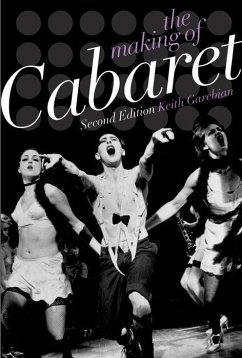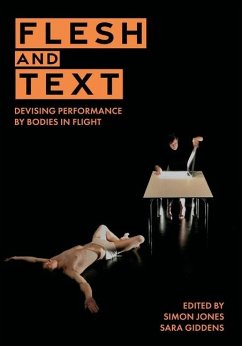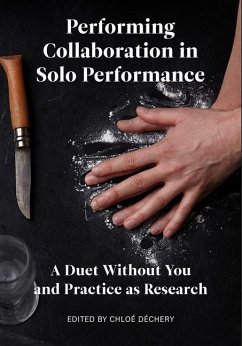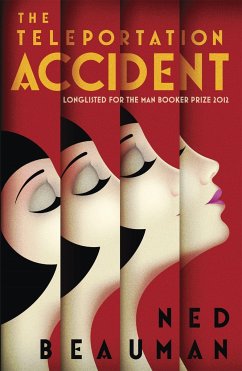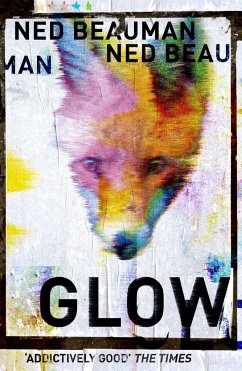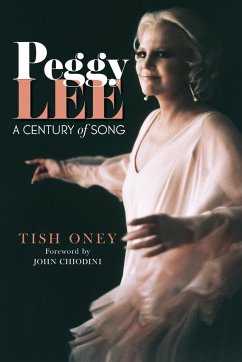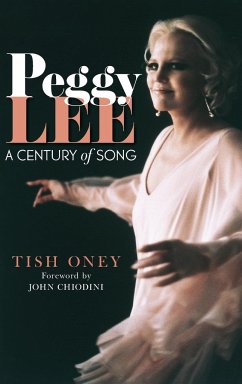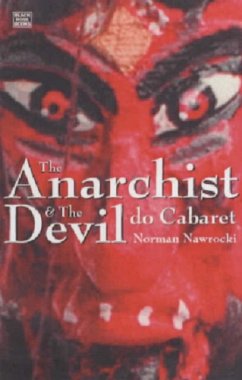Nicht lieferbar

A Holocaust Cabaret
Re-making Theatre from a Jewish Ghetto
Herausgeber: Peschel, Lisa
Versandkostenfrei!
Nicht lieferbar
Two scripts were created in 2017 from the same source materials: preserved song lyrics from a performance created in 1943 in the Terezin Ghetto called Prince Bettliegend (the Bedridden Prince), the popular 1930s jazz melodies to which those lyrics were set, and fragments of testimony by survivors who performed in or witnessed that production. The development processes took place under the auspices of the £1.8 million AHRC-funded project Performing the Jewish Archive. PtJA co-investigator Lisa Peschel has spent the past two decades researching theatrical performance in Terezin, and the project...
Two scripts were created in 2017 from the same source materials: preserved song lyrics from a performance created in 1943 in the Terezin Ghetto called Prince Bettliegend (the Bedridden Prince), the popular 1930s jazz melodies to which those lyrics were set, and fragments of testimony by survivors who performed in or witnessed that production. The development processes took place under the auspices of the £1.8 million AHRC-funded project Performing the Jewish Archive. PtJA co-investigator Lisa Peschel has spent the past two decades researching theatrical performance in Terezin, and the project's planned performance festivals in Australia and South African in the summer of 2017 afforded a unique opportunity to allow Prince Bettliegend to speak to our present. Peschel synthesized the existing materials into a rough plot outline, then collaborated with local production teams at the University of Sydney (produced by Joseph Toltz, directed by Ian Maxwell) and Stellenbosch University (directed by Amelda Brand) to reconstruct/recreate/re-imagine the play. Both teams were extraordinarily sensitive to questions of trauma and pleasure in the original performance, and those questions manifested themselves in different underlying themes that emerged with each production. During the first, month-long development process at the University of Sydney (July 2017), Peschel, Maxwell and Toltz worked together to refine the plot outline, Toltz and musical director Kevin Hunt explored the 1930s music with the entire production team, then the actors, recruited from Sydney's alternative theatre scene, developed the performance through improvisation. Due to fortuitous accidents of casting, a theme soon emerged that dovetailed with the historical reality of the ghetto: the desire of the older prisoners to protect the youth. While the Australian production was still in development, the South African team at Stellenbosch University, led by Amelda Brand, began creating their own version. Their performance was based on the same plot outline and, to some extent, the same text developed by the Sydney performers, but their production diverged radically due to their interest in addressing issues of more immediate interest to the multi-racial student case: race and power. Their musical approach also diverged: music director Leonore Bredekamp created a hybrid of 1930s jazz and klezmer music. Part I of the book is composed of a series of essays about the original material and about each production. The essays, written by Peschel and key collaborators on each development team, explore the Terezin production and both reconstructions. Part II comprises the scripts. Although the texts themselves are similar, detailed stage directions and illustrations make clear how each manifested its own themes. Part of Intellect's Playtext series.





